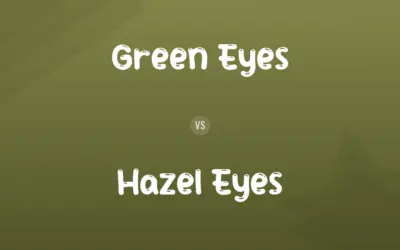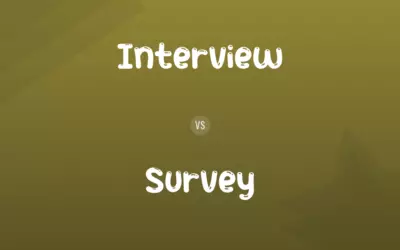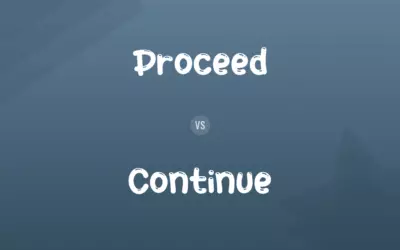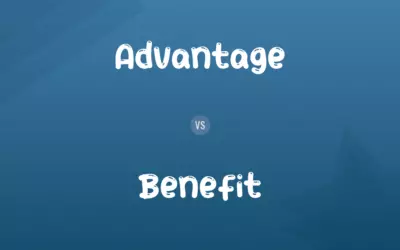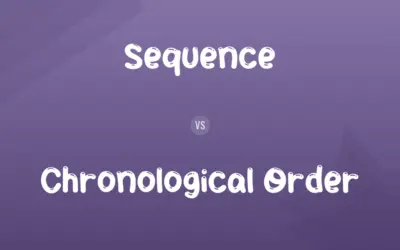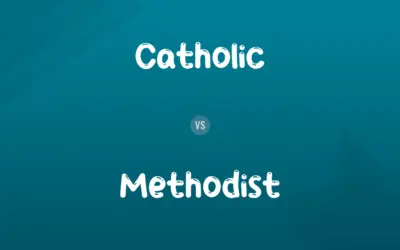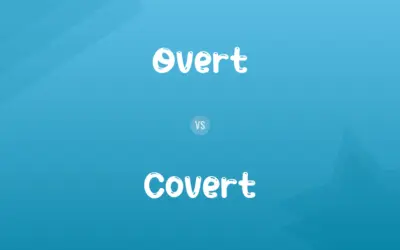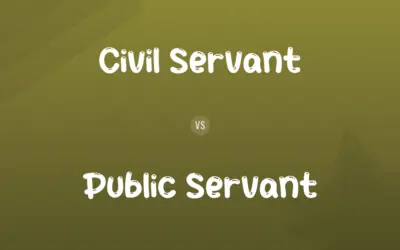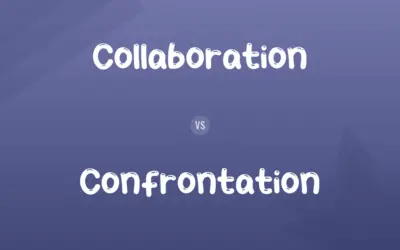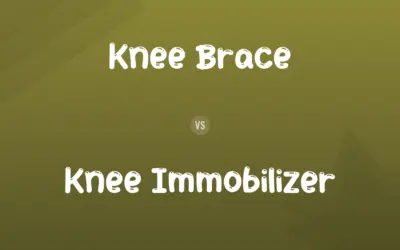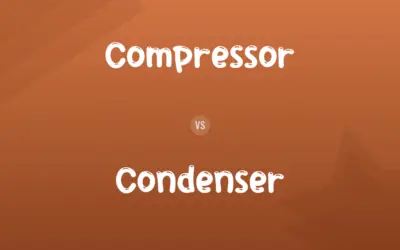Knowing vs. Believing: Difference and Comparison
Edited by Muazma Batool — By Muneeza Rehman — Published on April 11, 2024
Knowing involves having concrete evidence or understanding, whereas believing is accepting something as true without proof.
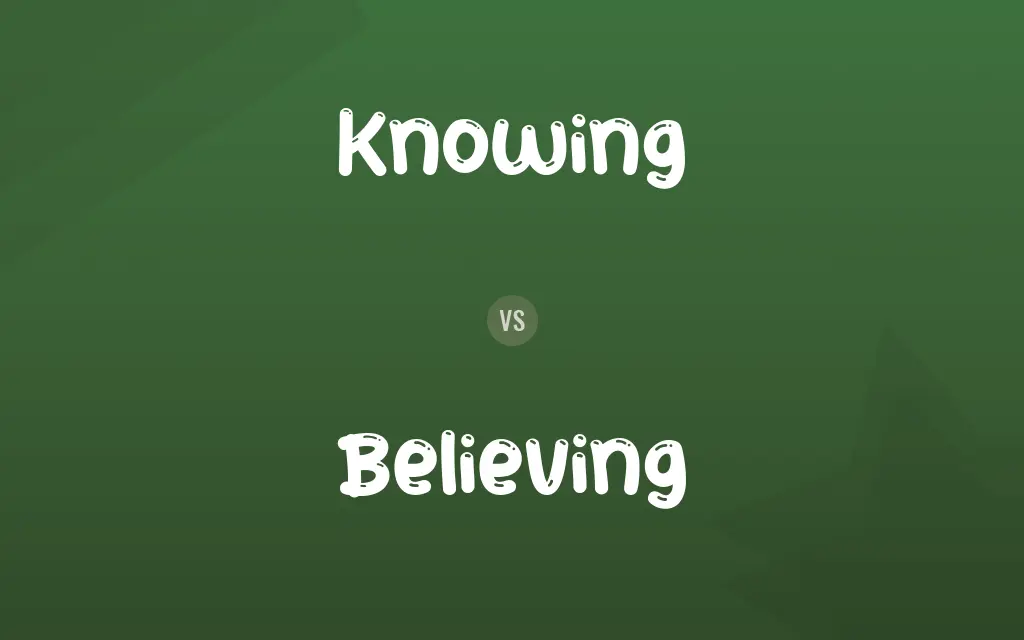
Difference Between Knowing and Believing
Knowing is grounded in evidence, experience, or direct understanding, offering a certainty about information or concepts. It is often verifiable and based on objective facts or firsthand experience. Believing, however, is based on faith, trust, or conviction in something without the need for empirical evidence. It can be influenced by personal values, culture, or societal norms and does not necessarily require proof for acceptance.
Muneeza Rehman
Apr 11, 2024
Knowledge can be tested and proven, beliefs are more subjective and can vary widely from person to person. Knowledge often requires learning and comprehension, whereas beliefs can be adopted based on influence, persuasion, or emotional appeal. This distinction highlights how people can believe in concepts without fully understanding them or having direct knowledge.
Muneeza Rehman
Apr 11, 2024
Beliefs can inspire actions and shape perspectives, even in the absence of concrete knowledge. People act on their beliefs, which can have significant impacts on their behavior and decision-making processes. Conversely, knowledge can inform and refine beliefs, leading to more grounded or changed perspectives based on new information.
Muneeza Rehman
Apr 11, 2024
The relationship between knowing and believing is complex, as beliefs can influence the pursuit of knowledge, and new knowledge can alter existing beliefs. For instance, learning new facts about a subject can challenge or reinforce one's beliefs, leading to a deeper understanding or a reevaluation of those beliefs.
Henry
Apr 11, 2024
Both knowing and believing are crucial for cognitive function and social interaction. Knowledge allows for informed decision-making and understanding, while beliefs provide a framework for values, ethics, and personal identity. The interplay between the two shapes individual worldviews and societal norms.
Muneeza Rehman
Apr 11, 2024
Knowing vs. Believing Comparison Chart
Basis
Evidence, experience, or direct observation
Faith, trust, or conviction without empirical evidence
Muneeza Rehman
Apr 11, 2024
Verifiability
Often verifiable and objective
Subjective and not necessarily verifiable
Muneeza Rehman
Apr 11, 2024
Requirement
Requires learning, comprehension, and evidence
Can be adopted without direct proof or understanding
Muneeza Rehman
Apr 11, 2024
Influence
Informs actions and decisions based on facts
Drives actions and decisions based on conviction
Muneeza Rehman
Apr 11, 2024
Knowing vs. Believing Definitions
◉Knowing
Possessing facts, information, or understanding about something.
She knows the answer to the math problem.
Muneeza Rehman
Feb 27, 2024
◉Believing
Accepting something as true without proof.
She believes in the power of positive thinking.
Muneeza Rehman
Feb 27, 2024
◉Knowing
Being aware of through observation, inquiry, or information.
He knows about the recent changes in the law.
Muneeza Rehman
Feb 27, 2024
◉Believing
Feeling confident about the truth of a proposition or prediction.
She believes it will rain later.
Henry
Feb 27, 2024
◉Knowing
Having direct experience of an event or fact.
They know the challenge of climbing a mountain firsthand.
Muneeza Rehman
Feb 27, 2024
◉Believing
Holding a conviction or faith in a particular idea or entity.
He believes in freedom and equality for all.
Muneeza Rehman
Feb 27, 2024
◉Knowing
Recognizing or being familiar with a person or thing.
She knows him from their school days.
Kaitlyn
Feb 27, 2024
◉Believing
Trusting in the reliability or truth of someone or something.
They believe her story after hearing all the details.
Muneeza Rehman
Feb 27, 2024
◉Knowing
Understanding a subject or area of study well.
He knows a lot about medieval history.
Levi
Feb 27, 2024
◉Believing
Adopting a stance or opinion based on personal conviction.
He believes that hard work pays off in the end.
Muneeza Rehman
Feb 27, 2024
◉Knowing
Possessing knowledge, information, or understanding
Very knowing about transportation costs.
Muneeza Rehman
Feb 26, 2024
◉Believing
To accept (something) as true or real
Do you believe his version of what happened?.
Muneeza Rehman
Feb 26, 2024
◉Knowing
Showing clever awareness and resourcefulness; shrewd and worldly
"Even so knowing a young ruffian as William Chaloner would have had no preparation for the shock of London" (Thomas Levenson).
Muneeza Rehman
Feb 26, 2024
◉Believing
To consider (someone) to be truthful or accurate in what they are saying
I believe you when you say that your neighbor is angry.
Muneeza Rehman
Feb 26, 2024
◉Believing
To expect or suppose; think
I believe it will snow tomorrow. I believe the letters to be authentic.
Muneeza Rehman
Feb 26, 2024
Knowing vs. Believing Frequently Asked Questions
Can beliefs influence what we seek to know?
Yes, personal beliefs can guide the pursuit of knowledge, determining what individuals consider important to learn or understand.
Muneeza Rehman
Apr 11, 2024
Can knowing and believing coexist?
Yes, individuals can both know and believe in concepts simultaneously, with beliefs often based on or influenced by what they know.
Muneeza Rehman
Apr 11, 2024
Is it possible to know something without believing it?
Yes, one can understand factual information without personally accepting or believing in its implications.
Muneeza Rehman
Apr 11, 2024
How does evidence affect knowing and believing?
Evidence strengthens knowing by providing proof and can influence believing by impacting one's conviction or trust.
Muneeza Rehman
Apr 11, 2024
How do knowing and believing impact decision-making?
Knowledge informs decisions with facts and evidence, while beliefs guide decisions based on values and convictions.
Henry
Apr 11, 2024
Is believing less valid than knowing?
Not necessarily; both have their place in human cognition and society, though knowing is typically more verifiable.
Henry
Apr 11, 2024
Can someone know too much?
While extensive knowledge can be overwhelming, it generally enriches understanding and decision-making.
Muneeza Rehman
Apr 11, 2024
How do emotions affect believing and knowing?
Emotions can strongly influence beliefs and, to a lesser extent, perceptions of knowledge, especially in interpreting facts.
Muneeza Rehman
Apr 11, 2024
How does culture influence knowing and believing?
Culture shapes the context in which we acquire knowledge and form beliefs, influencing what is considered true or important.
Muneeza Rehman
Apr 11, 2024
Is there a hierarchy between knowing and believing?
In academic and scientific contexts, knowing is often prioritized for its basis in evidence, but both are integral to human experience.
Muneeza Rehman
Apr 11, 2024
How can beliefs be changed?
Through exposure to new information, experiences, or evidence that challenges existing convictions.
Leo
Apr 11, 2024
Why do people sometimes believe in false information?
Due to biases, misinformation, or the emotional appeal of certain narratives, even in the absence of factual evidence.
Nolan
Apr 11, 2024
Can scientific knowledge alter beliefs?
Yes, scientific discoveries and evidence can challenge and sometimes change personal or societal beliefs.
Henry
Apr 11, 2024
What role does education play in knowing and believing?
Education is crucial in expanding knowledge and refining beliefs, promoting critical thinking and evidence-based understanding.
Muneeza Rehman
Apr 11, 2024
Do all beliefs have a basis in knowledge?
Not always; some beliefs are adopted based on faith, culture, or personal values without direct evidence.
Muneeza Rehman
Apr 11, 2024
Content Creators
Written by
Muneeza RehmanAt Comparisons.wiki, Muneeza skillfully navigates the vast sea of information, ensuring clarity and accuracy as the lead content editor. With a keen eye for detail, she curates every comparison to enlighten and engage readers.
Edited by
Muazma BatoolAs a content editor, Muazma Batool is not just a grammar guru but a creative mastermind who breathes life into every word. With an eagle eye for detail and a passion for storytelling, she transforms bland text into engaging content that captivates audiences and drives results.









